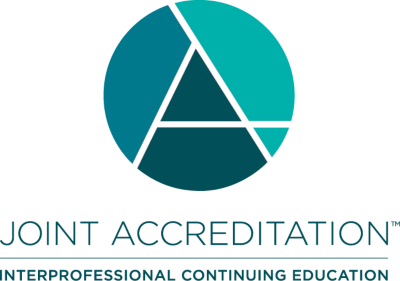Research in the Clinical Learning Environment: Strategies for Collaboration
Monday, August 19, 2019, 10:15 am - 11:15 am
Greenway E Room
Theme: Optimizing the Interprofessional Clinical Learning Environment
Although interprofessional education (IPE) continues to gain momentum in health professions’ classroom and simulated environments, interprofessional values taught at undergraduate and pre-professional levels are often lost once learners enter the clinical environment. Clinical learning shapes impressions about, attitudes toward, experience with, and acquisition of competencies necessary for interprofessional collaborative practice. It is where knowledge, thinking, and learning comes together and becomes situated for many learners, oftentimes indelibly imprinting future practice. Billet argued this point, saying, “to describe workplaces as being informal or unstructured learning environments is negative, imprecise and unfocused…as they are highly structured and intentional.”
The 2015 Institute of Medicine report recommended stakeholders, funders, and policymakers commit resources to understand IPE across the continuum of learning and demonstrate the association between IPE and collaborative behavior in practice, yet research productivity based in the CLE remains relatively scant. There is still much to be explored, described and uncovered in and about this area.
The 2019 Nexus Summit, “Optimizing Interprofessional Clinical Learning Environments,” provides an opportunity for leaders from the American Interprofessional Health Collaborative (AIHC) scholarship committee to facilitate an intentional look at current and desired state to advance scholarship to support evidence-based IPE and practice in the CLE, and to develop strategies well suited to moving this work forward. Measuring the Impact of Interprofessional Education on Collaborative Practice and Patient Outcomes describes research needed to strengthen the evidence base for IPE outcomes and presents a conceptual model for evaluating IPE that could be adapted to the particular setting in which it is applied. Using this as the basis, participants in this session will use Design Thinking to:
1. Translate relevant and important features of key learning concepts and learning theories central to the interprofessional community of practice as they apply to scholarship in the CLE.
2. Explore the research-practice gaps in the CLE.
3. Identify facilitators/barriers and interventions that are best aligned with addressing these gaps.
4. Generate 2-3 action steps to advance and support scholarship/career advancement.
5. Network with people who share similar research interests.
Leaders from the AIHC Scholarship Sub-Committee will share key concepts (Institute of Medicine Report, Implementation Science Framework, emergent Interprofessional Education Scholarship framework, and Proceedings from an NCICLE Symposium) and briefly describe several theories central to doing research in this area.
After a brief introduction and discussion (15 minutes), participants will work together in variations of pairs, small groups, and large group format (60 minutes) to move through three of five phases of Design Thinking:
1. Identify research-practice gaps (Empathize),
2. Define the problem, to include facilitators and barriers, and
3. Brainstorm and prioritize potential interventions that are aligned with addressing these gaps and moving the work forward (Ideate).
The session will close (15 minutes) with a summary of key points, participant reflection about next steps to support and advance IPCP scholarship in their respective clinical settings or other spheres of influence, and opportunity to network with others with similar interests. An annotated list of relevant resources will be shared at the conclusion.
Interprofessional Continuing Education
This activity has been planned and implemented by the National Center for Interprofessional Practice and Education. In support of improving patient care, The National Center for Interprofessional Practice and Education is jointly accredited by the Accreditation Council for Continuing Medical Education (ACCME), the Accreditation Council for Pharmacy Education (ACPE), the American Nurses Credentialing Center (ANCC) and the Association of Social Work Boards (ASWB) to provide continuing education for the healthcare team. The intent is to provide accreditation and continuing education credit for this workshop. For questions regarding continuing education, please email ipceapps@umn.edu.




